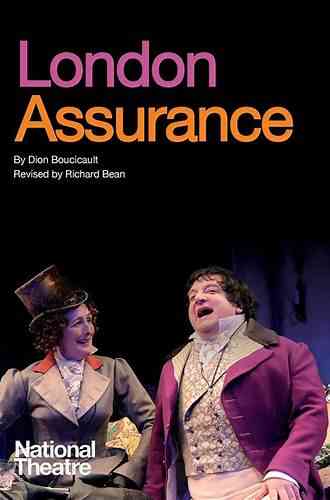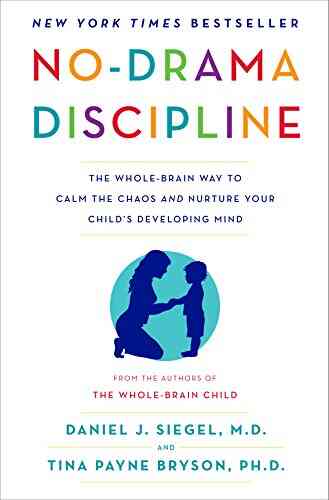The Whole Brain Way To Calm The Chaos And Nurture Your Child's Developing Mind

The journey of parenting is nothing short of extraordinary. It is an ever-evolving process that requires constant self-reflection, patience, and love. As parents, we want nothing but the best for our children, and nurturing their developing minds becomes a top priority. In this article, we will explore the whole brain approach to calm the chaos and foster a healthy environment for your child to grow and thrive.
Understanding the Whole Brain Approach
The Whole Brain Child, a revolutionary book by Dr. Daniel J. Siegel and Dr. Tina Payne Bryson, provides valuable insights into the integration of neuroscience, psychology, and practical parenting strategies. It emphasizes the significance of understanding how the brain works, and using that knowledge to navigate challenges and promote optimal development in children.
The brain is an intricate web of connections, constantly processing information and responding to various stimuli. The Whole Brain approach recognizes the different "sides" of the brain and their functions, which play a vital role in regulating emotions, making decisions, and forming relationships.
4.7 out of 5
| Language | : | English |
| File size | : | 15188 KB |
| Text-to-Speech | : | Enabled |
| Screen Reader | : | Supported |
| Enhanced typesetting | : | Enabled |
| X-Ray | : | Enabled |
| Word Wise | : | Enabled |
| Print length | : | 290 pages |
By understanding the unique characteristics of each brain hemisphere, parents can effectively respond to their child's needs and create a balanced approach to parenting. The four main steps of the Whole Brain approach are:
- Connect and Redirect: By emotionally connecting with your child, you can promote a sense of safety and trust. When emotions run high, redirecting their attention to a positive and constructive activity can help calm the chaos.
- Name It to Tame It: Encouraging your child to label their emotions helps them understand and regulate their feelings. By giving a name to what they are experiencing, you enable them to gain control over their emotions.
- Engage, Don't Enrage: Instead of reacting impulsively to your child's behavior, engaging with them empathetically allows for a deeper connection. By understanding the emotions behind their actions, you can guide them towards more appropriate responses.
- Use It or Lose It: Regular practice and repetition are key to strengthening neural connections in the brain. Encouraging your child to engage in activities that promote their overall well-being and brain development is crucial.
Nurturing Your Child's Developing Mind
Parenting requires a delicate balance of unconditional love and setting boundaries. The Whole Brain approach encourages parents to create an environment that nurtures a child's developing mind while also providing structure and guidance.
Here are some practical ways to implement the Whole Brain approach in your parenting:
1. Reflective Listening
When your child is upset or distressed, practice reflective listening. Show genuine empathy by acknowledging their feelings and reflecting them back. For example, if your child says, "I'm angry because my friend took my toy," respond by saying, "It sounds like you feel upset when someone takes your belongings without asking."
This approach helps your child feel heard and understood, fostering a stronger connection between you and them. It also helps them develop emotional intelligence as they learn to identify and express their emotions effectively.
2. Create a Safe Haven
Children thrive in a safe and secure environment. Establish consistent routines, clear boundaries, and an atmosphere of unconditional love and acceptance. This reassures your child that they can always count on you for support and guidance.
A well-structured environment enhances cognitive development and emotional resilience. Creating a calm and predictable setting helps children feel more at ease, minimizing chaotic episodes.
3. Encourage Open Communication
Building trust and open lines of communication is crucial for nurturing your child's developing mind. Foster an environment where your child feels safe expressing their thoughts and emotions without judgment.
Encourage them to talk about their experiences, share their fears, and ask questions. This practice not only strengthens your bond with your child but also supports their cognitive and social development.
4. Teach Problem-Solving Skills
Developing problem-solving skills at an early age equips children with the tools to navigate challenges independently. Encourage your child to brainstorm solutions to problems they encounter by asking open-ended questions.
By involving them in the decision-making process and guiding them towards logical thinking, you empower your child to think critically and develop problem-solving abilities essential for their future success.
5. Engage in Playtime
Playtime is not only fun but also crucial for your child's brain development. Engaging in imaginative play, physical activities, and puzzles helps stimulate different areas of the brain.
By actively participating in playtime with your child, you create opportunities for bonding and integration of both brain hemispheres. This integration enhances cognitive flexibility, creativity, and social skills.
Nurturing your child's developing mind by utilizing the Whole Brain approach is a journey filled with love, patience, and growth. By understanding the intricacies of their brain, you can create a harmonious environment that supports optimal cognitive, emotional, and social development.
Remember, the Whole Brain approach is not a one-size-fits-all solution. It requires continuous learning and adaptation as your child grows and develops. Embrace this beautiful journey and watch as your child's mind blossoms into its fullest potential.
4.7 out of 5
| Language | : | English |
| File size | : | 15188 KB |
| Text-to-Speech | : | Enabled |
| Screen Reader | : | Supported |
| Enhanced typesetting | : | Enabled |
| X-Ray | : | Enabled |
| Word Wise | : | Enabled |
| Print length | : | 290 pages |
NEW YORK TIMES BESTSELLER • The pioneering experts behind The Whole-Brain Child and The Yes Brain tackle the ultimate parenting challenge: discipline.
“A lot of fascinating insights . . . an eye-opener worth reading.”—Parents
Highlighting the fascinating link between a child’s neurological development and the way a parent reacts to misbehavior, No-Drama Discipline provides an effective, compassionate road map for dealing with tantrums, tensions, and tears—without causing a scene.
Defining the true meaning of the “d” word (to instruct, not to shout or reprimand),the authors explain how to reach your child, redirect emotions, and turn a meltdown into an opportunity for growth. By doing so, the cycle of negative behavior (and punishment) is essentially brought to a halt, as problem solving becomes a win/win situation. Inside this sanity-saving guide you’ll discover
• strategies that help parents identify their own discipline philosophy—and master the best methods to communicate the lessons they are trying to impart
• facts on child brain development—and what kind of discipline is most appropriate and constructive at all ages and stages
• the way to calmly and lovingly connect with a child—no matter how extreme the behavior—while still setting clear and consistent limits
• tips for navigating your child through a tantrum to achieve insight, empathy, and repair
• twenty discipline mistakes even the best parents make—and how to stay focused on the principles of whole-brain parenting and discipline techniques
Complete with candid stories and playful illustrations that bring the authors’ suggestions to life, No-Drama Discipline shows you how to work with your child’s developing mind, peacefully resolve conflicts, and inspire happiness and strengthen resilience in everyone in the family.
Praise for No-Drama Discipline
“With lucid, engaging prose accompanied by cartoon illustrations, Siegel and Bryson help parents teach and communicate more effectively.”—Publishers Weekly
“Wow! This book grabbed me from the very first page and did not let go.”—Lawrence J. Cohen, Ph.D., author of The Opposite of Worry
Do you want to contribute by writing guest posts on this blog?
Please contact us and send us a resume of previous articles that you have written.




















Light bulbAdvertise smarter! Our strategic ad space ensures maximum exposure. Reserve your spot today!

 Derek BellHow To Break Free From Narcissistic Relationship And Heal Your Heart - Guide...
Derek BellHow To Break Free From Narcissistic Relationship And Heal Your Heart - Guide...
 Charles BukowskiThe Dolphin Mark: Unraveling the Secrets of the Ocean's Most Enigmatic...
Charles BukowskiThe Dolphin Mark: Unraveling the Secrets of the Ocean's Most Enigmatic... Dwight BlairFollow ·10.4k
Dwight BlairFollow ·10.4k Vince HayesFollow ·9.9k
Vince HayesFollow ·9.9k Braden WardFollow ·9.6k
Braden WardFollow ·9.6k Robert ReedFollow ·6.9k
Robert ReedFollow ·6.9k Carlos FuentesFollow ·16.1k
Carlos FuentesFollow ·16.1k Winston HayesFollow ·2k
Winston HayesFollow ·2k Yasunari KawabataFollow ·11.9k
Yasunari KawabataFollow ·11.9k Aron CoxFollow ·17k
Aron CoxFollow ·17k

 Dawson Reed
Dawson ReedThe Ultimate Guide: All You Have To Think About Getting...
Are wedding bells in your future?...

 Douglas Adams
Douglas AdamsUnleash Your Inner Hero: The Path of Vengeance Second...
Have you ever wondered what it would be...

 Aleksandr Pushkin
Aleksandr PushkinCrochet Pattern: Elegance Headband - Easy Headband for...
Are you tired of searching for the perfect...

 Patrick Hayes
Patrick HayesFulfilling Family Life Bite Sized For Successful Families
Having a fulfilling family life is something...

 Emilio Cox
Emilio CoxAn Epic Tale Of The Chinatown Underworld And The American...
In the heart of bustling cities, hidden...

 Luke Blair
Luke BlairMy Muse Florence: Discovering the Heart of Italy Through...
By: [Your Name] | Published: [Publication...

 Milan Kundera
Milan KunderaDrone Political Technothriller: Miranda Chase -...
Prepare yourself for a thrilling journey...

 William Wordsworth
William WordsworthUnveiling the Riveting Tale of Cold Blooded Kindle Single...
Have you ever come across a book that...

 Andres Carter
Andres CarterNever Blend With The Wind: The Dangers of Conforming to...
Imagine a world where everyone looks, acts,...

 Abe Mitchell
Abe MitchellUnleashing the Beast: The Untold Story of Killer...
Prepare yourself for a heart-pounding journey...

 E.M. Forster
E.M. ForsterLondon Assurance Oberon Modern Plays: A Tale of Wit,...
In the bustling heart of London's...
4.7 out of 5
| Language | : | English |
| File size | : | 15188 KB |
| Text-to-Speech | : | Enabled |
| Screen Reader | : | Supported |
| Enhanced typesetting | : | Enabled |
| X-Ray | : | Enabled |
| Word Wise | : | Enabled |
| Print length | : | 290 pages |




















